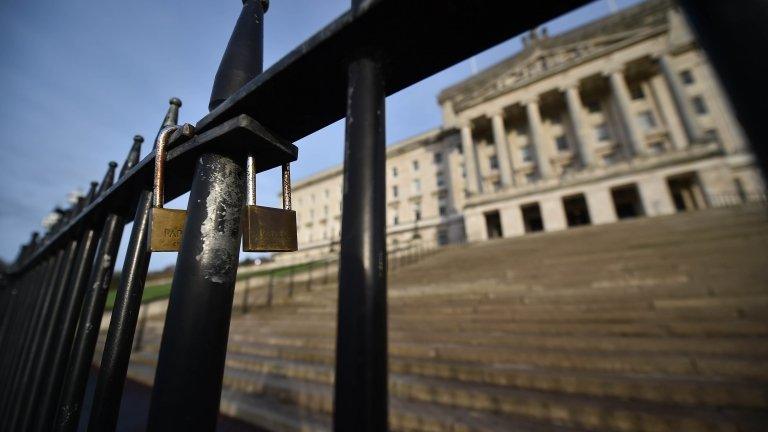Stormont: UK and Irish governments lead progress review
- Published
- comments
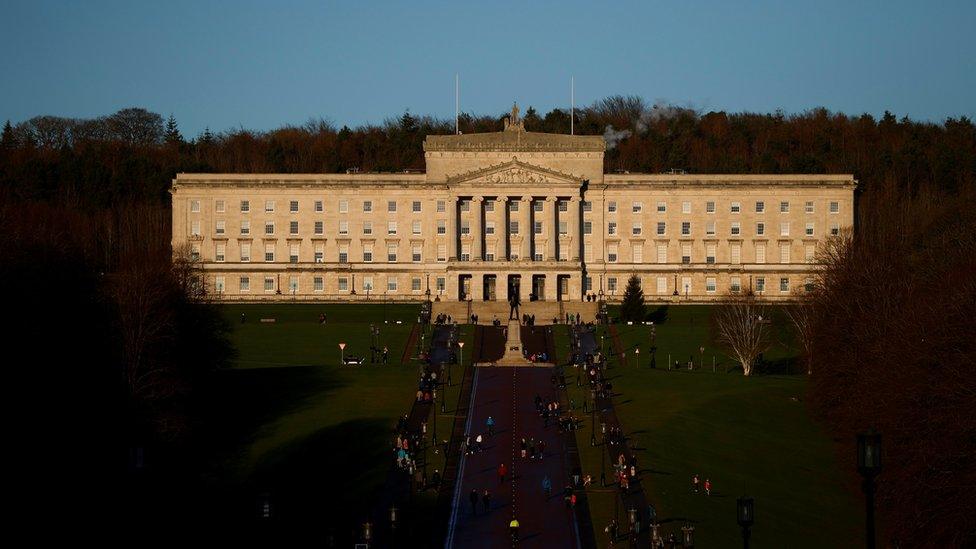
The UK and Irish governments have met some of Stormont's political leaders to review the progress of power-sharing one year since it was restored.
The New Decade, New Approach deal agreed in January 2020 ended three years of political deadlock.
First Minister Arlene Foster said more could have been achieved since then but the Covid-19 crisis had been dominant.
Deputy First Minister Michelle O'Neill said parties were making big efforts to maintain the "new era" at Stormont.
The review on Monday was led by Northern Ireland Secretary Brandon Lewis and Irish Foreign Minister Simon Coveney.
Deal done after many missed deadlines
Stormont's power-sharing coalition collapsed in January 2017 over a row about how a green energy scheme had been operated.
During the next three years the main political parties were involved in several rounds of negotiations in a bid to settle their disagreements.
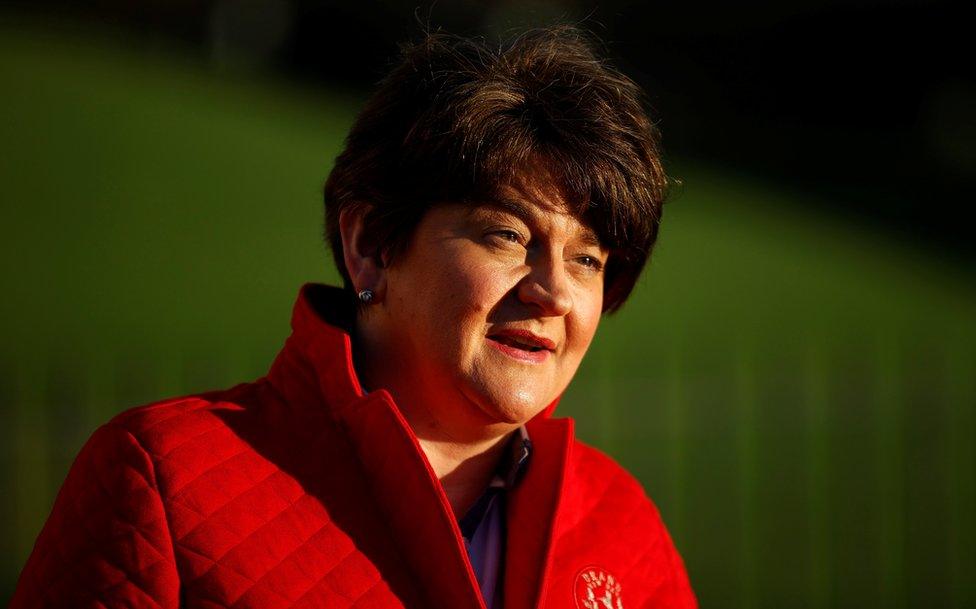
Arlene Foster says the Covid-19 crisis has hindered the progress the executive wanted to make
Numerous deadlines were missed and there was little in the way of meaningful progress.
But the two largest parties - the Democratic Unionist Party (DUP) and Sinn Féin - struck a deal last year to restore the political institutions.
The agreement contained a plan of action for the new executive, external - including committments on issues such as health, education and culture - as well as financial pledges from the UK and Irish governments.
The executive that was subsequently formed was made up of ministers from the DUP, Sinn Féin, the SDLP, the Ulster Unionist Party and the Alliance Party.
'Strained relationships'
Speaking on Monday, Mrs Foster, the DUP leader, said the ministers "would have made much more progress" had it not been for the coronavirus pandemic.
But she added: "We have nonetheless put in place a number of issues that we committed to put in place."
She said those included publishing a mental health action plan, opening a compensation scheme for victims of historical institutional abuse and appointing a commissioner for veterans.
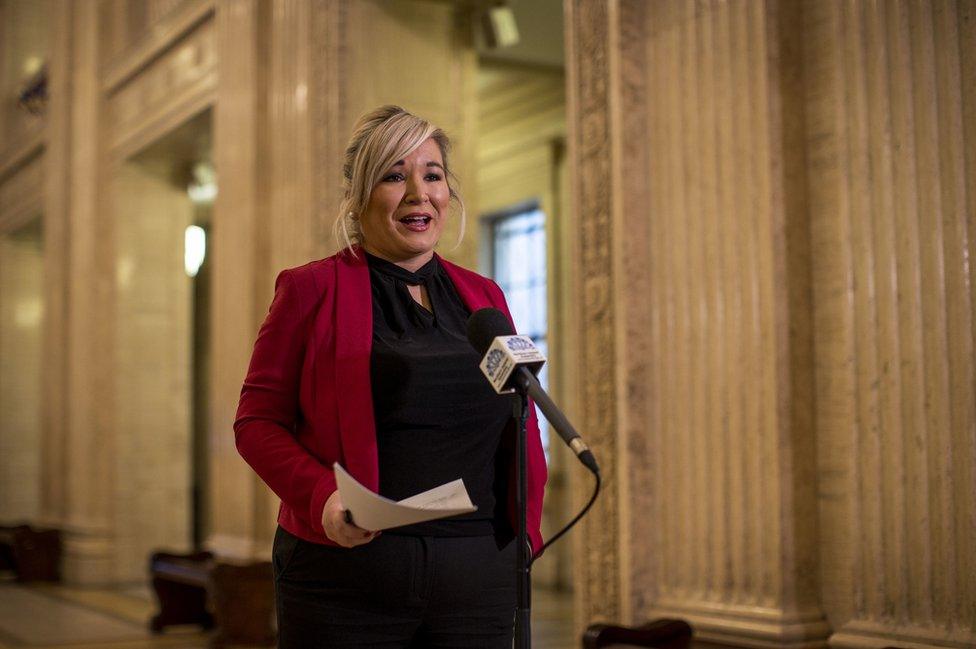
Michelle O'Neill says Stormont ministers have shown leadership during the pandemic
Ms O'Neill, the Sinn Féin vice-president, said she was "very grateful" that an executive had been in place to deal with the effects of the pandemic.
She said: "We were there to show the political leadership that was required to take the tough decisions.
"We don't always agree, of course - we try our best to work together where we can... but it is challenging and there are strained relationships at times."
Ulster Unionist leader Steve Aiken said the executive "should be doing much better", adding that the "dysfunctionality" in the way it operated had been apparent in recent months.
He warned that unless it changed what he described as its "culture of immature government" then "much of what remains of the rapidly diminishing goodwill shown towards the executive will be lost".
Julian Smith, who was replaced as Northern Ireland secretary shortly after completing his role in overseeing the New Decade, New Approach deal talks, said relationships between the parties were crucial to making devoultion work.
"The thing that concerns me most is the trust between the parties," he said.
- Published11 January 2021
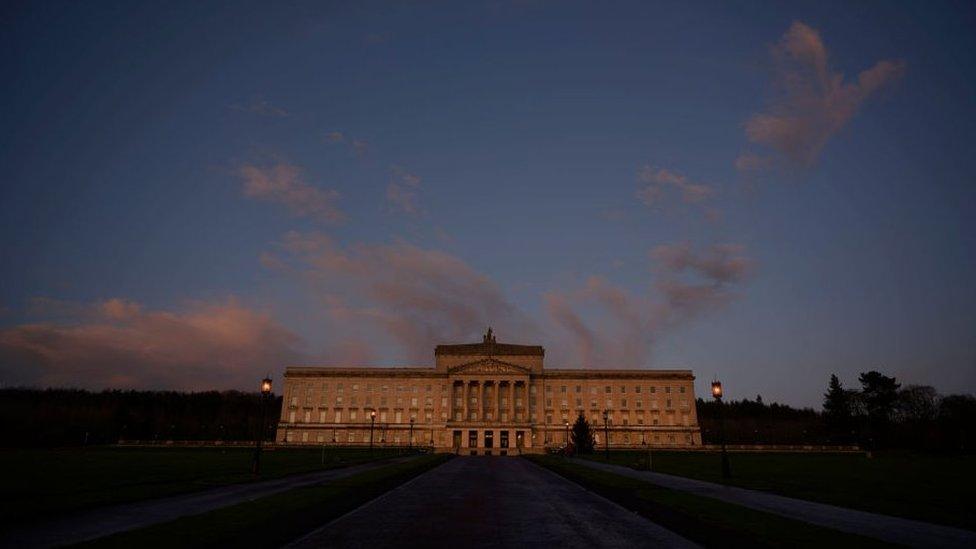
- Published10 January 2020
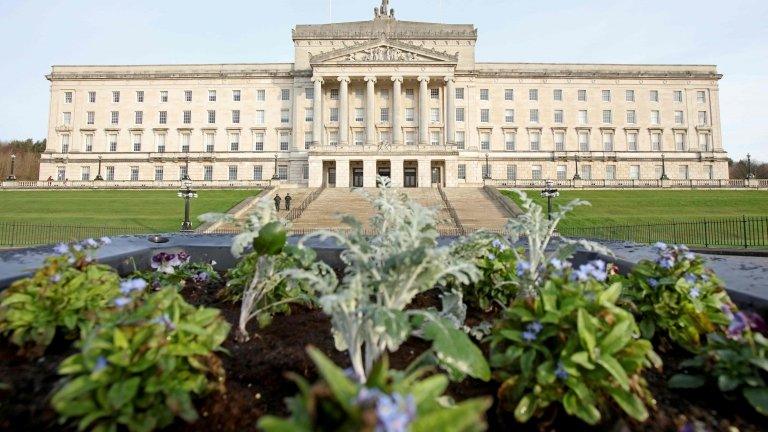
- Published10 January 2020
